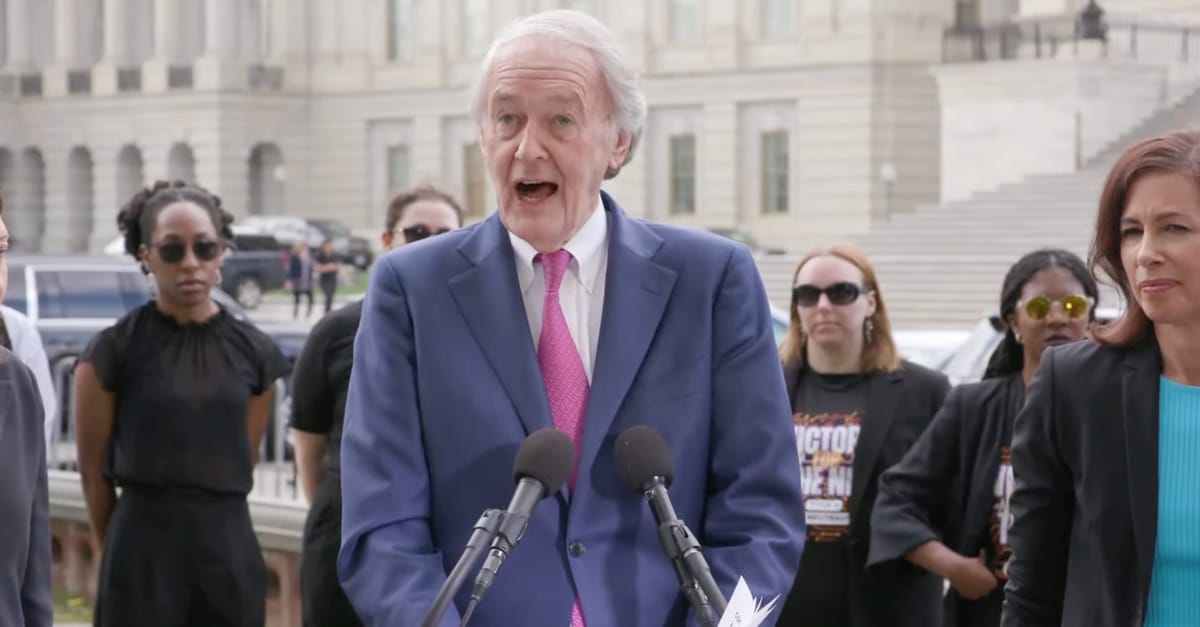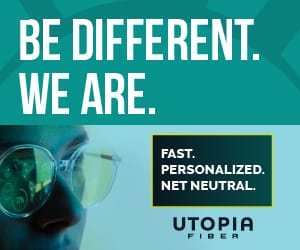
WASHINGTON, April 18, 2024 – Democratic lawmakers expressed support for the Federal Communications Commission’s net neutrality proposal ahead of the agency’s vote next week.
The proposal is likely to pass along party lines at the agency’s meeting on April 25. It would reclassify broadband as a Title II service under the Communications Act, opening ISPs up to more stringent regulatory authority from the agency – namely prohibitions on throttling or paid prioritization of internet traffic.

“Net neutrality, like so much of telecommunications policy, is an antitrust issue,” said Sen. Ed Markey, D-Massachusetts. “It’s about ensuring that monopoly and duopoly broadband providers cannot quash competition, squeeze consumers, and squish the little guy.”
Markey spoke at a press conference with the FCC Chairwoman Jessica Rsoenworcel and lawmakers including Sens. Maria Cantwell, D-Washington, and Ron Wyden, D-Oregon, as well as Rep. Anna Eschoo, D-California.
It’s the latest show of the Democratic party’s strong support for the measure, which was introduced as soon as Commissioner Anna Gomez was confirmed and cemented a majority. Net neutrality has been a longstanding goal of the Biden administration, and the White House’s chief telecom advisors wrote to the agency last month reiterating support for “strong net neutrality rules.”
Like in 2015 when net neutrality was first instituted before being walked back by the Tremp-era FCC, broadband providers – plus the commission’s two Republicans – have made clear they oppose the rules. But the commission’s 3-2 Democratic majority makes it likely the proposal will succeed and lobbying efforts have shifted in recent weeks to how the commission should change certain provisions of its draft order before approving it.
Universal Service Fund
Whether or not to forbear from requiring broadband providers to pay into the FCC’s Universal Service Fund has become a hot-button issue before the agency.
The USF spends roughly $8 billion annually to subsidize infrastructure in rural areas and internet costs for schools, healthcare centers, and low-income households. It’s funded by fees on telecommunications companies, which would include broadband providers if they were to be reclassified under Title II. That could be a useful infusion of cash, as lawmakers are looking at the USF as a more stable alternative to congressional appropriations for the imperiled Affordable Connectivity Program, while also working to modernize it in the face of declining voice revenues.
But the draft order would forbear from exercising that authority, citing a fear that consumers would see sudden price hikes on their internet bills.
“Rather than risk this upheaval, we believe it in the public interest to proceed cautiously and incrementally,” the draft reads.
Public interest groups quickly expressed concern that the move could close the door on collecting USF fees from broadband providers in the future. They noted that despite language in the draft reserving the ability to do so, reversing a full-on forbearance could prove more time consuming and difficult than starting a new rulemaking to build a record on the effects of tapping ISPs for contribution, which would still take long enough to avoid any sudden changes for consumers.
Rural providers, many of whom rely on USF support in hard-to-serve areas, joined those asking the commission to opt for a rulemaking this week.
“Forbearance is a blunt instrument where a lighter touch that has a similar effect would be far more appropriate,” wrote rural broadband trade group NTCA in an April 17 filing. “It is difficult for the commission to ‘un-ring the bell’ once it has done so through forbearance.”
CCIA and INCOMPAS, trade groups representing software companies and competitive ISPs respectively, have even asked that the agency strike from the draft its comments about the potential impacts of not forbearing, arguing the agency relied on flawed studies and incomplete information.

Large providers, for their part, have been meeting with FCC staff to ask that the agency go further and block states from collecting their own USF fees from broadband providers, which the 2015 net neutrality order did.
5G network slicing
Industry groups and consumer advocates have met repeatedly with commission staff in recent weeks to discuss how net neutrality rules should handle the practice of network slicing. The technology is still nascent, but it involves using multiple, distinct virtual networks on the same physical infrastructure. Each slice can be reserved for and used by certain kinds of applications or a single customer.
Industry groups have argued that services operating on the technology should be considered “specialized services,” effectively exempting traffic on network slices from net neutrality rules.
That could present a loophole for mobile providers to violate net neutrality prohibitions on paid prioritization by charging more for access to faster slices, advocates say, arguing that mobile providers could charge more for access to slices optimized for uses like gaming or streaming – services that could otherwise function normally on the general internet.
They have urged the agency to limit the specialized services designation to network slices for high-stakes uses like remote surgery in its final order, or to strengthen the draft’s language on speeding up traffic to match its clear prohibitions on slowing down traffic.
The agency’s public draft, which will likely differ from the final version voted on next week, declines to do either, opting for a case-by-case approach. AT&T and Verizon met this week with commission staff to support that position.
“Placing unnecessary restrictions on this technology could stifle it in its infancy, to the detriment of consumers and our nation’s leadership position in the mobile economy,” Verizon wrote in an ex parte filing.
Stanford Law School Professor Barbara van Schewick, one of the industry analysts who first flagged the issue, met with a senior legal advisor for Commissioner Geoffrey Starks on Monday to urge the FCC to change course in its final order.
“There is no way to predict which kinds of fast lanes the FCC might ultimately find to violate the no-throttling rule,” she wrote in an ex parte filing. “This gives ISPs cover to flood the market with various fast-lane offerings, arguing that their version does not violate the no-throttling rule and daring the FCC to enforce its rule.”

